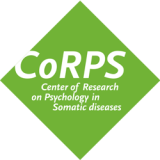dr. Kevin van Schie

Assistant Professor
TSB: Tilburg School of Social and Behavioral Sciences
TSB: Department of Medical and Clinical Psychology
Bio
Kevin van Schie is an experimental psychologist who is fascinated by how individuals can change their own memories. Therefore, his research is heavily grounded in the (neuro)science of memory with a special focus on memory modulation/forgetting, resilience/stress, and climate anxiety. In laboratory studies he investigates exactly how these topics are involved in improving treatment and prevention of psychological disorders.
He obtained his PhD in psychology in 2018 from Utrecht University. After that he was an assistant professor in clinical psychology at Erasmus University Rotterdam. In 2019 he was awarded an NWO Rubicon grant and was a postdoctoral fellow at the University of Cambridge for 2 years. Currently, he is an assistant professor at Tilburg University.
Courses
Recent publications
-
The Psychological Science Accelerator's COVID-19 rapid-response datas…
Buchanan, E. M., Lewis, S. C., Paris, B., Forscher, P. S., Pavlacic, J. M., Beshears, J. E., Drexler, S. M., Gourdon-Kanhukamwe, A., Mallik, P. R., Silan, M. A. A., Miller, J. K., IJzerman, H., Moshontz, H., Beaudry, J. L., Suchow, J. W., Chartier, C. R., Coles, N. A., Sharifian, M., Todsen, A. L., ... Primbs, M. A. (2023). The Psychological Science Accelerator's COVID-19 rapid-response dataset. Scientific Data, 10(1), Article 87. -
Omitting continuous memory recall from dual-task interventions does n…
van Schie, K., & van Veen, S. C. (2023). Omitting continuous memory recall from dual-task interventions does not reduce intervention effectiveness. Behaviour Research and Therapy, 164, Article 104291. -
On the role of inhibition in suppression‑induced forgetting
van Schie, K., Fawcett, J. M., & Anderson, M. C. (2023). On the role of inhibition in suppression‑induced forgetting. Scientific Reports, 13, Article 4242. -
In COVID-19 health messaging, loss framing increases anxiety with lit…
Dorison, C. A., Lerner, J. S., Heller, B. H., Rothman, A. J., Kawachi, I. I., Wang, K., Rees, V. W., Gill, B. P., Gibbs, N., Ebersole, C. R., Vally, Z., Tajchman, Z., Zsido, A. N., Zrimsek, M., Chen, Z., Ziano, I., Gialitaki, Z., Ceary, C. D., Lin, Y., ... Coles, N. A. (2022). In COVID-19 health messaging, loss framing increases anxiety with little-to-no concomitant benefits: Experimental evidence from 84 countries. Affective Science, 2022(3), 577-602. -
In COVID-19 Health Messaging, Loss Framing Increases Anxiety with Lit…
Dorison, C. A., Lerner, J. S., Heller, B. H., Rothman, A. J., Kawachi, I. I., Wang, K., Rees, V. W., Gill, B. P., Gibbs, N., Ebersole, C. R., Vally, Z., Tajchman, Z., Zsido, A. N., Zrimsek, M., Chen, Z., Ziano, I., Gialitaki, Z., Ceary, C. D., Lin, Y., ... Coles, N. A. (2022). In COVID-19 Health Messaging, Loss Framing Increases Anxiety with Little-to-No Concomitant Benefits: Experimental Evidence from 84 Countries. Affective Science, 3(3), 577-602.

